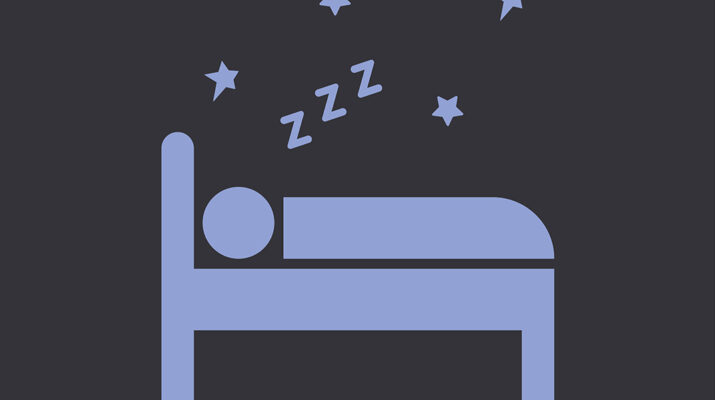How you can clean up your act when it comes to sleep
By Deborah Jeanne Sergeant

“Sleep hygiene” doesn’t refer to clean bedding — although that may help you feel comfortable in bed and improve sleep — but it means you have the right environment and habits to induce restful sleep.
“In general, engaging in sleep hygiene will not necessarily cure chronic insomnia but it is crucial as an adjunctive approach to treatment,” said Alice Hoagland, Ph.D., director of theinsomnia clinic at Rochester Regional Health’s Unity Sleep Disorders Center.
Rather than jumping to medication or other interventions, looking at sleep hygiene can provide a non-invasive, no-side-effects means of getting sufficient rest. Most adults require six to nine hours of sleep every night. It’s helpful if those hours occur at the same time each night.
“One of the most important sleep hygiene interventions is regulating the sleep and wake schedule,” Hoagland said. “Patients frequently have quite erratic bed and wake times, the latter being the more important. Before seeking professional advice, we recommend that setting a solid and regular sleep schedule is a crucial first step.”
Working a swing shift job may not be advisable for people struggling with sleep problems.
Some people claim that a “night cap” helps them sleep better, but Hoagland said that alcohol should be avoided within four hours of bedtime, along with reducing caffeine after 2 p.m.
Those who use nicotine should avoid doing so within four hours of bedtime. Quitting altogether would be ideal.
A light snack before bed is fine for most people, but skip foods that are spicy, greasy or heavy.
Waking up too early in the morning can disrupt sleep. Hoagland said that engaging in regular exercise helps improve sleep continuity and reduces early morning awakenings.
“The bedroom should be conducive to sleep,” Hoagland said. “This simply means that the room should ‘advertise’ that sleep is the most important activity in that space.”
She wants patients to remove the TV from the bedroom and, even tougher, the cellphone.
“The hyperarousal associated with simply the presence of a cell phone in the room is well documented,” she said. “Get a regular alarm clock if necessary.”
Remove visual stressors pile of clutter or basket of laundry as well. Maintain a neat bedroom that promotes tranquility. Reserve the bed for sleep and sex, not other activities.
Replace your mattress if needed and use comfortable bedding. Keep the room dark with black-out shades. Use white noise from a fan or radio tuned to static to muffle other sounds. Most people sleep better in a room that’s slightly cool. Wear comfortable nightwear and use sufficient pillows to find a comfortable position.
Many people wind down to sleep better if they engage in a nightly routine. This signals to the body that it’s time for sleep. A warm bath, dim lighting and calming activities can help. Get away from screens before bedtime, as the light signals your body to wake up. Read a bit or engage in a quiet craft. Perform a few mundane chores around the house.
Anyone who continues to experience problems sleeping should discuss the issue with their primary care provider.

